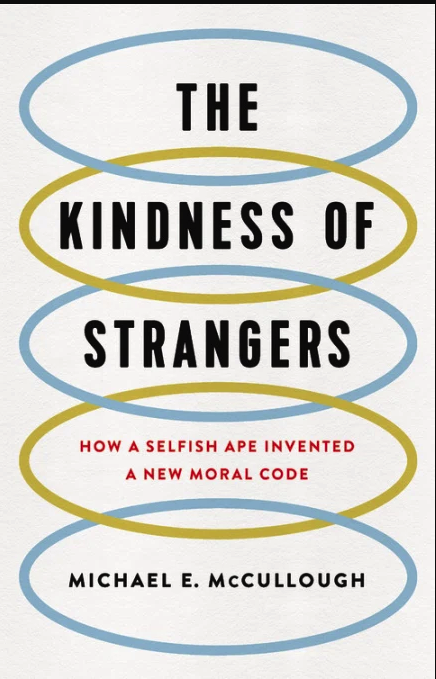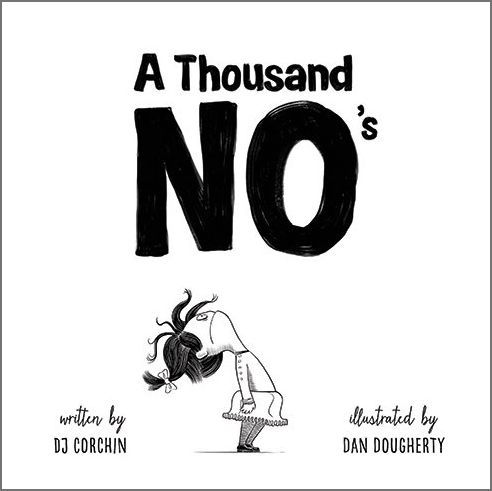
Literature
Literary Scene: Enjoy This Month’s Eclectic Selections
By Ryan G. Van Cleave

The Kindness of Strangers:
How a Selfish Ape Invented a New Moral Code
by Michael E. McCullough
Considering the challenging times we find ourselves in, this title called out to me. Indeed, the idea of the good Samaritan is tackled in these pages. It might seem strange, but the good Samaritan concept wasn’t always something worthy of applause and admiration, explains Michael E. McCullough, a professor of psychology at the University of California, San Diego.
Prior to reading this book, I hadn’t deeply contemplated the history of humans’ concern for the well-being of perfect strangers, but as the author notes, there is no analog for this behavior in the animal kingdom. And until 1500 or so, people assumed poverty was “just another of life’s unpleasant inevitabilities.” What happened then is what has happened since—our species has run across crisis after crisis, and we realized the only way to survive was to alter our behavior. So, we did.
In short, McCullough argues, we created an evolved moral sense via taking a reasoned approach. We decided that there’s not that much difference between our close relatives and strangers, and that meant someday strangers can help us if we are kind to them first. The “secret” ingredient here is reason. It’s why we rush to donate blood when there’s a disaster, and it’s why most industrialized nations commit 20% or more of their funding to social programs. We KNOW it’s the right thing to do.
For those who feel anxiety about one or more of the great challenges we face today—climate change, nationalism, mass migration, and more—this book offers ideas on how we might adapt our moral thinking to survive and thrive. And it wisely avoids lapsing into sentimentality or glibness along the way.
The Kindness of Strangers contains big ideas, but McCullough presents them in understandable ways with helpful anecdotes and well-explained theory. Some might find his ideas controversial, but the book is well-worth reading.
Ryan’s Rating: 4.25 Out of 5
local.psy.miami.edu/faculty/mmccullough/

The Scam List
by Kurt Dinan
I’m a fan of TV “feel-good crime” shows like Leverage, and that’s what Kurt Dinan’s young adult book reminds me of. Enter the unreliable narrator, Boone McReedy. Shady. Narcissistic. And a kid, too. The goal? With the help of his fiery ex-girlfriend, Darby West, pull off enough cons to cover the $15,000 scammed from his mom’s business…that was his fault.
Yes, he’s a kid con artist, but Dinan works hard to make him likable despite his flaws. He’s got a dad in jail—reader sympathy there for sure! He’s got the fast-talking gift of gab—fun! And when it comes to cons, Boone’s only conning those who deserve it, Robin Hood style.
I enjoyed this book a good bit. It moved fast, the cons were fun, the humor was there without being overdone, and Boone had a complexity that was unexpected.
So, read it. You’ll enjoy it. As Boone himself says it: “You have my word. Would I lie to you?”
(Visit the author’s website to get The Con Artist Dates: The Prequel Stories to THE SCAM LIST for free by signing up for a newsletter, if you want!)
Ryan’s Rating: 4.25 Out of 5
www.kurt-dinan.com

A Thousand No’s
by DJ Corchin
Illustrated by Dan Dougherty
DJ Corchin’s picture book, A Thousand No’s, aspires to empower young readers and help them overcome rejection. The story follows an unnamed, ponytailed girl—who curiously has no nose!—who has an idea. We never know quite what it is, but it’s represented as a glowing ball of light. Time after time, this idea gets rejected by others. But she perseveres, and that good idea transforms into a great idea. And we all can guess what’ll happen to her once she’s got a great idea on her hands!
The art is simple and has a sparse, comic feel to it. The language is lean. At 40 pages, the book is a fast read, which helps keep readers focused on the messaging. In short, it’s easy to see why this story would be popular with parents and educators, as well as people in marketing and sales.
Two things to note.
One—this book was originally published a couple of years ago. The author’s website states that publisher Sourcebooks has acquired the rights to his entire published library, which is why it’s now being reissued. Having never seen the original, all of my comments are regarding the new version, which releases in August 2020.
Two—As much as I support the fundamental message of the book, the plural of “No” is not “No’s.” Merriam Webster, the Oxford English Dictionary, and numerous other sources all explain that the correct plural is “noes” or “nos.” This might not bug you, but it stops me cold, grammatically speaking.
Regardless, this book plays with color in an interesting way—watch for the end! And fans of Kobi Yamada, Peter H. Reynolds, and Etan Boritzer might well appreciate the metaphorical success story that is A Thousand No’s.
Ryan’s Rating: 3.75 Out of 5
www.DJCorchin.com



You must be logged in to post a comment Login